by Ann Garrison
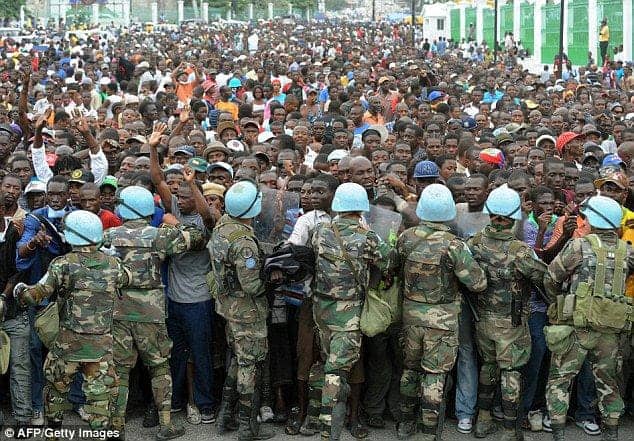 In case anyone needed further evidence that President Paul Kagame’s Rwanda is the Pentagon’s proxy, 140 Rwandan police are about to undertake special training before heading to Haiti, as reported in the Rwanda New Times, because, according to Rwandan Police Chief Eric Kayiranga, “Rwanda wants to be involved in promoting peace in other countries” and, if need be, they would send more peacekeepers to other countries.
In case anyone needed further evidence that President Paul Kagame’s Rwanda is the Pentagon’s proxy, 140 Rwandan police are about to undertake special training before heading to Haiti, as reported in the Rwanda New Times, because, according to Rwandan Police Chief Eric Kayiranga, “Rwanda wants to be involved in promoting peace in other countries” and, if need be, they would send more peacekeepers to other countries.
Rwanda police are off to Haiti to promote peace, even as:
1) Grenades explode in Kigali in the run up to its 2010 presidential election, and two of three viable parties are still unable to register and field candidates against incumbent President Paul Kagame.
2) A new list of the five most horrible prisons on earth includes Rwanda’s Kigali Gitarama Prison and describes it as the most overcrowded penitentiary in the world, so overcrowded that prisoners have no choice but to stand up all day while their feet rot in filth, often developing gangrene, which may require amputation. (Amnesty International reported, in 2005, that Gitarama Prison was way overcrowded, with 7,477 prisoners in space designed for 3,000.)
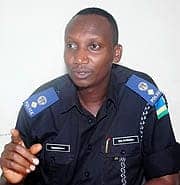 3) Top military commanders and government officials flee the country, and journalists go into hiding to escape arrest.
3) Top military commanders and government officials flee the country, and journalists go into hiding to escape arrest.
4) Amnesty International, Human Rights Watch, Reporters Without Borders, the Commonwealth Human Rights Initiative Group, the Africa Faith and Justice Network, the Greens European Free Alliance and Sen. Russ Feingold, chair of the U.S. Senate Subcommittee on Africa, call for human rights, an end to attacks on political opposition, and a free and fair presidential campaign and election, with polls scheduled for Aug. 9, 2010.
And why does Haiti need all these U.S. and U.N. troops and now Rwandan police ‘peacekeepers’?
Even France accused the U.S. of occupying rather than aiding Haiti, the former jewel of the French empire, but it’s very difficult to interpret this as anything but France’s pseudo moral complaint against its longstanding imperial competitor – England and the Anglophone world – in Africa, Asia and the Caribbean.
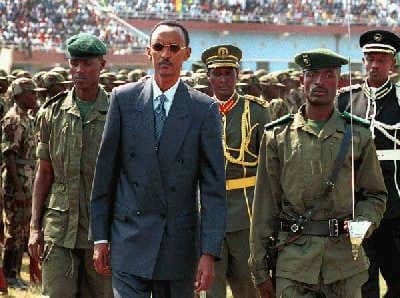
Sound familiar? Where else do Rwandan troops, if not police, serve? Wherever the U.S. wants to project military force in Africa, including resource rich nations, like oil rich Sudan, which the U.S. forever threatens to invade “to stop genocide,” and now resource rich Haiti, which much of the world perceives as a part of Africa as much as a part of the Americas.
And oil and mineral rich D.R. Congo, where the Rwandan Army’s constant invasions and mineral theft in that country’s tortured eastern provinces were finally, in January 2009, officially sanctioned, when the Rwandan Defense Force collaborated with the Congolese Army (FARDC), the Rwandan CNDP militia and U.N. peacekeepers (MONUC) to, so they said, go after the FDLR, the Rwandan Hutu refugee militia. The FDLR is the eternal excuse for military aggression and mineral theft in eastern Congo.
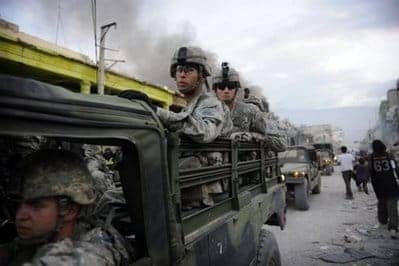
This unlikely and unholy alliance emerged in eastern D.R. Congo on Jan. 20, 2009, Barack Obama’s Inauguration Day, and all eyes were on Washington, D.C., the first African American U.S. president, Rev. Rick Warren, celebrities dotting the crowds in the streets and Aretha Franklin’s hat.
But so little of the world heeds or makes sense of sub-Saharan African news that only a handful of bloggers, dissident journalists and scholars noted, on Jan. 20, that D.R. Congo had suddenly become a violent D.R. Disneyland.
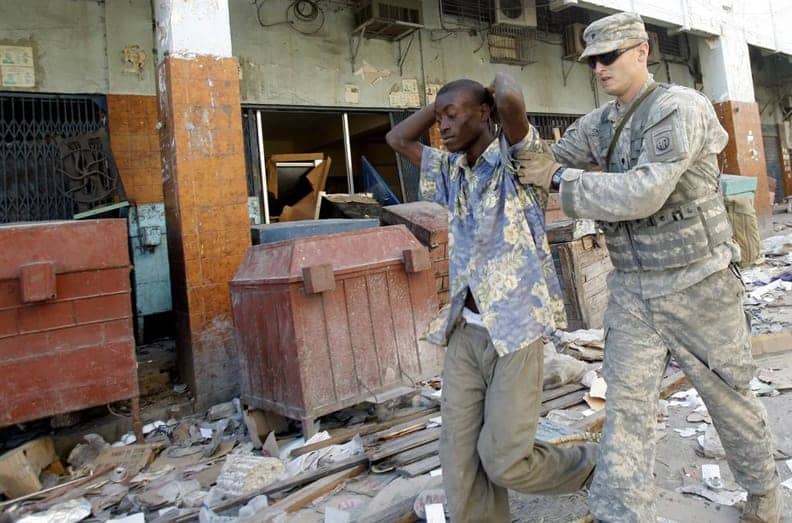
Why not Congolese soldiers? Because they lack the discipline of the Pentagon’s Rwandan proxy army and, as Keith Snow reported, many of them were defecting to join the Western Congolese fighters calling themselves the Resistance Patriots of Dongo.
Now, with 140 Rwandan police about to undertake training to serve as peacekeepers in Haiti, the first question is: Why peacekeepers? Didn’t Haiti suffer an earthquake, not a war? And aren’t 10,000 U.S. troops there already?
Why not 140 more Haitian police? Why Rwandans? If Haiti needs “peacekeepers within its own borders,” shouldn’t Haitians be best able to keep the peace in their own homeland?
Yes, but not the peace that those now managing the U.S. occupation of Haiti want.
In February 2007, the New Times reported that the FBI was training Rwandan police in modern interviewing and interrogating techniques and in counter-terrorism, criminal investigation and cyber crimes investigation.
San Francisco writer Ann Garrison writes for the San Francisco Bay View, Digital Journal, Examiner.com, OpEdNews, Global Research and Colored Opinions. This story first appeared on her blog, AnnGarrison.blogspot.com.




